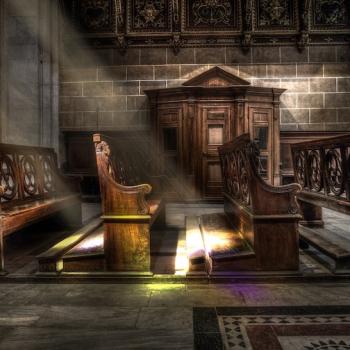
I promise this isn’t clickbait. I really think the American Church has failed the family.
Even with the youth programs, small groups, and college outreach, the American Church has failed the family.
Forget the pro-life rhetoric and sanctity of marriage speeches. The Evangelical American Church has failed to produce strong families that can handle our 21st century. Why?
Post Structure?
The 1900’s was a dramatic time in world history. Two world wars, several international conflicts, and the wild advancement in technology was unprecedented. Before the 20th century, most Christians around the world would consider themselves amillennialists. They would have thought that the Church was ushering the reign of Jesus on earth by the gradual advancement and betterment of the human race. After all, things were getting better and better for Europeans around the world.
The destructive power of the atom bombs dropped on Japan changed the way the world saw everything. We were now capable of desolating large areas of land, not to mention people. This, and the horrors of World War II, altered our view of systems in our lives.
Philosophy in the mid-20th century called into question the structures we had been so comfortable with for so long. Not only nation states, but social norms as well as religious dogmas. If the Church in Germany could sponsor and support the Nazi agenda, how could we trust it to have the interest of the people at heart? Was it systemically rotten or was it just a branch to prune?
While Evangelicalism was rising in America, the Mainline Church was on the decline. It seemed that the promise of a future heaven was more probable. Throughout the 1960’s and 70’s, the Jesus movement found a new way for Christianity to blossom in America. This group incorporated modern music and focused more on the radical side of Jesus – feeding the poor and helping the needy.
The 1980’s and 90’s was the rise of the megachurch and televangelists. This hypercapitalistic Christianity measures success on attendance and tithes. Consumer Christianity continued into the 21st century and we see the fruits of this model.
The product of consumer Christianity and a skeptical public is a Christianity that has no roots.
Deep Roots
If we are becoming more skeptical, why would a deep rooted Christian tradition be better?
I can only speak for myself, but learning about the history of the Church and theology has brought me to an older tradition. What the Evangelical Church in America lacks is the deep tradition of thinking through challenges. Our problems are not fundamentally new, but they do wear new hats.
Mainline denominations (Episcopal/Anglican, Methodist, Lutheran, etc.) have a rich history of thinkers wrestling with new ideas. Philosophical arguments with Jesus in the center are part of their tradition. The stability of the teaching of these Churches is like the deep root structure of a tree. As generations of people go through these denominations, their interpretation of the Scripture is adapted for the time they are in. We can see the line that stretches, connecting dots along the way.
The modern skeptic may be able to find more authentic conversations in these denominations. Or at least I did. I found a history of Churches that was not afraid to talk about the issues of the day. More than talk about the issues, I found philosophers who took them seriously. The Church is a prism – each color is important to the whole. This prism is a small sampling of what Jesus is doing in the world today.
What Now?
I see a major flaw in the American Evangelical Church in its inability to critique itself. The Roman Catholic Church has a history of sects inside the Catholic faith – the Dominicans, Franciscans, Benedictines, etc. The Methodists started as a radical sect of the Church of England, but eventually found themselves separated in America. Still, the goal was to reform the Church from the inside.
Evangelicalism, and many of the American Protestant denominations, separate and silo themselves from the others. This is even more severe in fundamentalist churches. Rather than struggle with issues brought to light by science and society, they tend to double down and retreat.
What makes a strong family? This is subjective of course, but we need to be able to work through the changes in our time. We need to give our children tools to work through our modern ethical and moral discussions. Small groups of dogmatic beliefs can’t prepare a sheltered child from the world forever. We need to teach the next generation how to view the world through the loving lens of Jesus. That’s how we build a stronger family and society.

















